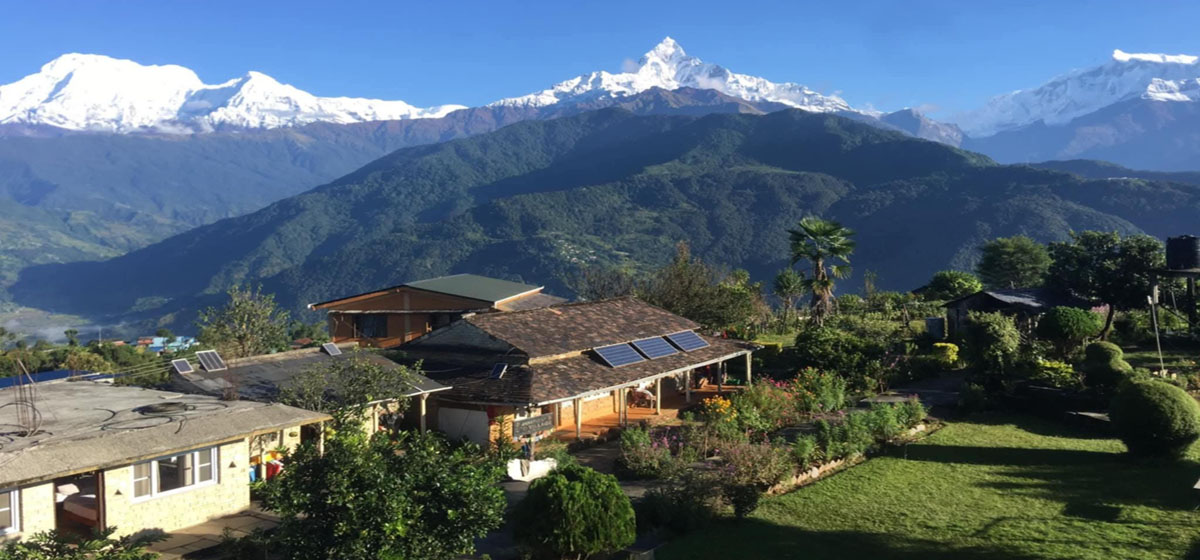A village: what is it? What is meant by a village? How can a village be idealized? How do you idealise rural populations? - Stacy Leigh Pigg's
I consider the village to be the foundation of our knowledge. By "our," I mean those who have a direct or indirect connection to the village. For those whose three generations are separated, the village may be an unfamiliar environment.
Belonging to the field of social science, I have always believed in the power of community-based interventions, and rural/village camps are one of the most profound ways to connect with and understand the unique challenges and strengths of rural populations. As educators, we discuss the value of theory, but for anyone to fully comprehend the complexity of our world, knowledge must be transformed into wisdom through real-world experiences. For our students majoring in social work, psychology, journalism, and English, the social work and rural immersion camp offered just that: a chance to apply their academic knowledge in practical situations and broaden their understanding.
A beautiful and special moment for me during the social work and rural immersion camp 2025 of Saint Xavier’s College Maitighar, Kathmandu, to Lamjung was that many of our students had never been outside their town, and the camp became an eye-opening experience. Despite the challenges, they learned new skills, but they also saw different ways of life, different possibilities, and realized that there was a larger world beyond their own community.
To further deepen their ways of understanding the community, our students designed a respectful and relevant type of medication-use survey, visiting community members to talk about the kinds of medicines they take, be it prescribed drugs, aleopathic, homeopathic, or traditional remedies.
They did not stop at surveys. To deepen understanding, they applied several PRA tools, such as: Transect Walk, Social and Resource Mapping, Seasonal Calendar, Mobility Ranking, Venn Diagram, Priority Matrix, Focus Group Discussion and Semi‑Structured Interviews, holding small group conversations to uncover why people choose self-medication, whom they trust, how they weigh traditional versus formal healthcare and the problems faced by dependent population on a daily basis.
Nepalis pray for health and wisdom as coronavirus curtails crow...

By engaging community members and Students of Shree Ganesh Malika secondary school of Lamjung in PRA tools exercises, and workshop on media awareness and social issues presented at Shree Salme Madhyamik Vidhyalaya, Nuwakot, our students demonstrated an action-oriented mindset. These abilities strengthened our students' roles as future agents of local empowerment by enabling them to not only recognize issues but also ignite a long-lasting change.
The provoking sentence mentioned by one of the elderly women still echoes in my mind:
“Paila ko Lamjung ma nabatothyonatah gari nai, thyotahhamrokhusi, tara ahilahamrogoan ma batoghato cha tara mancheychaina, khusichaina. Achama ko jamana”.
Hearing the story of elderly women who were age of 60+ what made me realise was the concept of feminism and empowerment definitely comes from within. There was no necessity to have reference of any content as such.
The most important thing for the students was they got to see how migration affects people, not only urban but also rural areas being vulnerable. Many young people from the villages of Lamjung and Nuwakot had moved away, leaving behind older, dependent family members who had to deal with social, economic, and emotional problems. Still, a group of older women had a lot of faith in Nepal's educated youth, believing that one will bring about positive change and help their village rebuild and become stronger.
Similarly, for educators, it is important to visit a community and see it through the lens of modernization. Nepal is trying to compete in a global world, but it is slowly losing its identity. For example, the use of homeopathic medicine has declined, creating more dependency on aleopathy. The use of traditional medicine such as RugeyJhar, Shikari Lara, and Harchul to heal a broken leg bone with bamboo has been a long-lost story. Since then, our community has come a long way. But the question that keeps popping up in my mind and in everyone's mind is whether we are really protecting what we have or just rat-racing,trying to compete with the rest of the world in every way.
Catherine Forde and Deborah Lynch cite Ife 1998 Critical Practice for Challenging Times: Social Workers’ Engagement with Community Work, claiming that Transformative practice can only take place when practitioners become aware of their own power and how it is unintentionally used to reinforce inequality. I believe this statement perfectly fits in when we are seeking an actual change in the community. Supporting this, our students who lead themselves into engagement are in the process of becoming professional practitioners.
“The Social Work camp has added a fruit in my life as it helped me to adjust to a new way of lifestyle. Not only on the personal level, this camp gave me a space to grow academically through the supervision of Faculty members, by being able to learn PRA tools on how to conduct a Survey touching a community life”. This statement can be analyzed in terms of the positive impact it has had on the student’s life.
The excellent time and learning experience we had in both camps will be forever cherished in our memories.
I urge the younger generation and aspiring social workers to move forward to listen more deeply, to act more compassionately, and to empower marginalized and vulnerable members of the community, and make this society a better place to live.
- BE MORE- DO MORE- With compassion in Heart
(The author is a social work lecturer at St. Xavier’s College.)





































